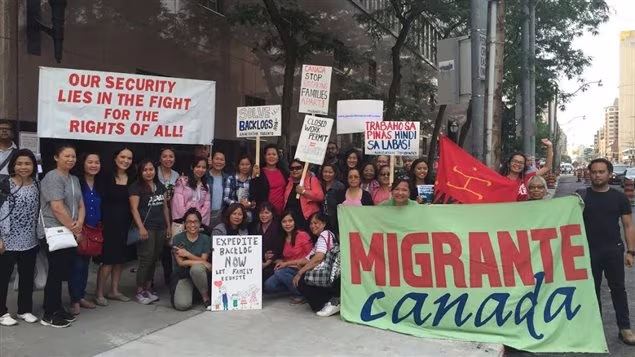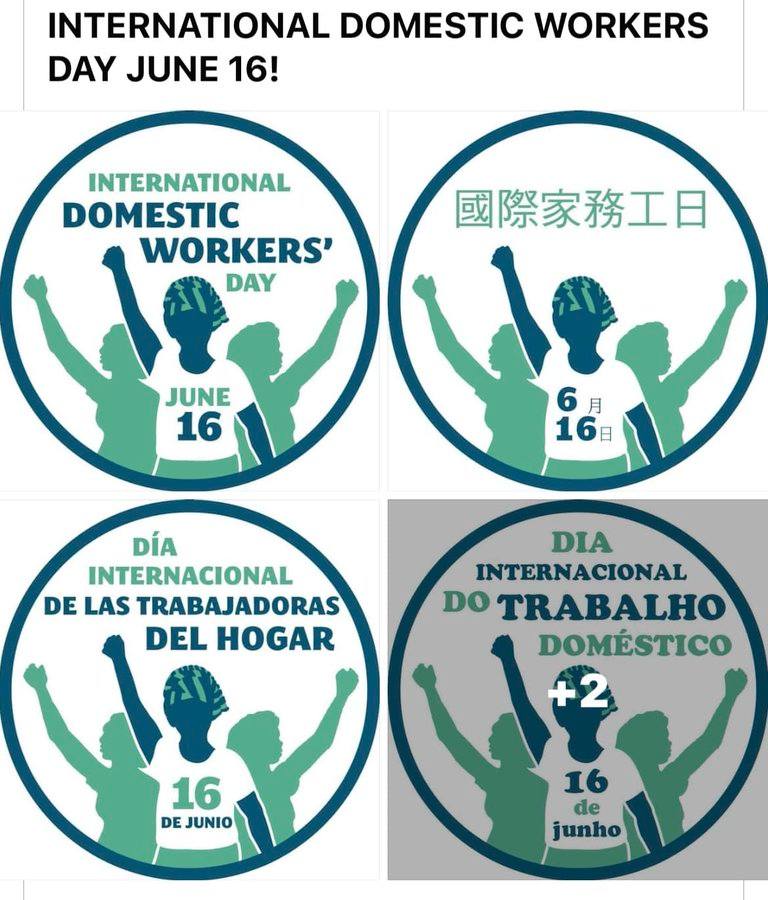
June 16 is International Domestic Workers Day.
It was on this day in 2011 that the International Labour Organization (ILO) adopted the International Convention on Domestic Workers (C-189). This historic Convention recognizes that domestic work is work. As workers, they are entitled to labour rights and worker protection, equal rights, and recognition. Simply put, domestic workers enjoy the right to a minimum wage; the right to freedom of association and collective bargaining; the right to have at least one day off per week and reasonable hours of work; the right to decent and safe working conditions (even if they work in their employer’s homes), the right to complain about unfair work treatment; the right to clear information on terms and conditions of employment, among other workers’ rights.
It is about proclaiming loudly and rightfully that domestic work is work, therefore they are workers with full labour rights. Yes, they are workers. Not family members, not family friends, not servants, not slaves, not disposable workers, but workers with full and equal rights.
Women have come to Canada to do caregiving and domestic work for more than a century. While women workers from Europe who came in the first half of the 1900s were welcomed on a permanent basis, this was no longer the case when racialized and migrant women from the Global South came as caregivers. Canada’s history of caregiving has always been marked with abuses, systemic racism, and other violations of workers rights of caregivers. But that history has also been one of caregivers fighting back with activism, organizing, and education, not only by themselves and their organizations, but also by migrant rights advocates from across sectors. The stories of caregivers Juana Tejada who successfully fought to get her PR on her sick bed, and of Leticia Sarmiento who bravely stood up to her employer who was charged with labour trafficking.
Migrante Canada recognizes that caregivers provide essential and valuable work in caring for Canada’s children, the elderly, and those with disabilities. There are “approximately 25,000 migrant caregivers in Canada” (CLC Statement, Dec 10, 2021) who provide labour for work that is not short-term or temporary. Childcare, elder care, care for the sick, and those with disabilities are neither best served with a revolving stream of temporary or guest workers, nor with many changes (pathways and pilot programs) in the Caregiver Program.
Together with other migrant organizations, alliances, and networks, we raise the call to the Canadian government for permanent landed status on entry for migrant caregivers. The recent changes in the Caregiver Program have left caregivers who are already in Canada to lose their status and become undocumented. We raise the call for regularization and permanent resident status for those with precarious and no status.
While Canada presents an image of a champion for human rights, it has ignored the Convention on Domestic Workers or C-189 (adopted in 2011) that ensures decent, fair, and safe work for domestic workers and has not ratified it. Canada has also not ratified the International Convention on the Protection of the Rights of All Migrant Workers and Members of Their Families (adopted in 1990). Canada has neither signed nor acceded to both Convention, therefore, it has no commitments or responsibilities for Canada under the Conventions. ###
Landed Status Now! Regularization Now!
Domestic work is work!
Uphold the rights, well-being, and dignity of migrant domestic workers!
End forced labor migration!

